Pediatric Urology: Can Kids Get Kidney Stones?
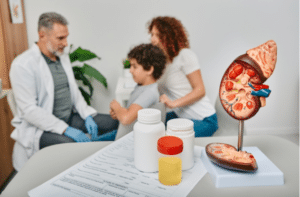
What Causes Kidney Stones?
Kidney stones can develop when there is a high concentration of crystal-forming substances in the urine. These include uric acid, oxalate, and calcium. When too much of any one of these is present in the urine, small particles stick together. The stone forms in the renal pelvis where urine collects before it travels to the ureter. It isn’t the presence of the stone in the kidney that causes pain; it is the passage of the stone through the ureter. This canal is small and delicate even in adults. It is especially small in children. When a kidney stone passes through the ureter, it can create a blockage of urine. Everything behind the blockage becomes swollen and irritated, resulting in unilateral pain.
Too much of a crystal-forming substance is the direct cause of a kidney stone, but what causes this buildup is equally important. Some of the reasons kidney stones form include:
- Not enough citric acid in the diet (fresh citrus fruits provide this)
- Not drinking enough water
- Eating too much salt
Health conditions that may increase a child’s risk of developing kidney stones include:
- Urinary tract infections
- Diabetes
- Obesity
- Thyroid conditions
- Kidney conditions
Do Kidney Stones Have to be Treated?
Sometimes, kidney stones can pass on their own. Until that time, it may be necessary to take over-the-counter pain medication as directed. It is also necessary to drink plenty of water. The child’s pediatrician may make other recommendations as well. However, lab tests and imaging should be performed to identify the location and size of the stone before a treatment recommendation is made. Some stones do require clinical intervention such as Extracorporeal Shock Wave Lithotripsy or Ureteroscopy to break up a stone so it can pass naturally.
UT Urology offers patient-centered pediatric urology care to restore comfort and peace of mind quickly. To schedule a consultation, contact our Chattanooga office at (423) 778-5910.

 March is Kidney Cancer Awareness Month. Did you know that this type of cancer is one of the 10 most common in America? It is estimated that more than 70,000 new cases occur each year. More men than women are diagnosed with this disease, and usually later in life. It is our job to inform people of the risks, symptoms, and treatment options related to
March is Kidney Cancer Awareness Month. Did you know that this type of cancer is one of the 10 most common in America? It is estimated that more than 70,000 new cases occur each year. More men than women are diagnosed with this disease, and usually later in life. It is our job to inform people of the risks, symptoms, and treatment options related to 
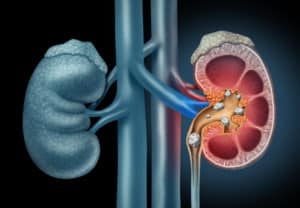 The kidneys perform vital functions that support overall health. What most people know about these small organs is that they filter toxins and wastes from the blood. This is true. The blood filters through the kidneys, which remove unnecessary substances and release them through the urine. While filtration is a major responsibility, the kidneys do even more. These organs produce hormones that are involved in the production of red blood cells and that promote healthy blood vessel constriction. When problems occur in the kidneys, we want to know why and how we can help the kidneys function at optimal capacity.
The kidneys perform vital functions that support overall health. What most people know about these small organs is that they filter toxins and wastes from the blood. This is true. The blood filters through the kidneys, which remove unnecessary substances and release them through the urine. While filtration is a major responsibility, the kidneys do even more. These organs produce hormones that are involved in the production of red blood cells and that promote healthy blood vessel constriction. When problems occur in the kidneys, we want to know why and how we can help the kidneys function at optimal capacity.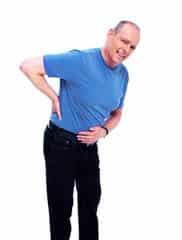 Kidney stones are not something we expect to experience, and yet 12% of us will. Once this temporary health problem occurs once, there is a strong chance that we will see it again. In fact, research tells us that a person who has one bout of kidney stones has a 50% chance of having another at some point. At UT Urology, we provide care that resolves
Kidney stones are not something we expect to experience, and yet 12% of us will. Once this temporary health problem occurs once, there is a strong chance that we will see it again. In fact, research tells us that a person who has one bout of kidney stones has a 50% chance of having another at some point. At UT Urology, we provide care that resolves 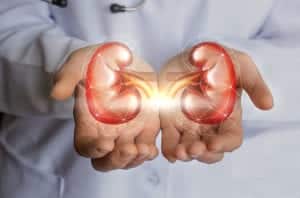

 When we hear about cancer, it is usually breast cancer or skin cancer. However, did you know that kidney cancer is up there among the top ten cancer diagnoses in our country? It is estimated that approximately 14,000 deaths may occur each year as a result of this disease. It is not the risk of mortality that warrants discussion, although that is, of course, important. What we want to point out is that 75-80% of patients diagnosed with stage I or II kidney cancer survive. The more you know, the better you can guard your health.
When we hear about cancer, it is usually breast cancer or skin cancer. However, did you know that kidney cancer is up there among the top ten cancer diagnoses in our country? It is estimated that approximately 14,000 deaths may occur each year as a result of this disease. It is not the risk of mortality that warrants discussion, although that is, of course, important. What we want to point out is that 75-80% of patients diagnosed with stage I or II kidney cancer survive. The more you know, the better you can guard your health.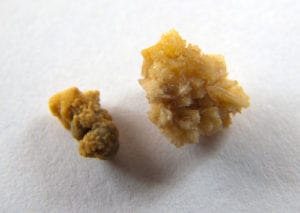 If you know someone who has had a kidney stone, you know someone who has likely experienced some of the worst pain of his or her life. Because stones are more prevalent in men than in women, and because one bout with kidney stones creates a higher likelihood of another, we want to help you implement habits that will reduce your risk.
If you know someone who has had a kidney stone, you know someone who has likely experienced some of the worst pain of his or her life. Because stones are more prevalent in men than in women, and because one bout with kidney stones creates a higher likelihood of another, we want to help you implement habits that will reduce your risk.